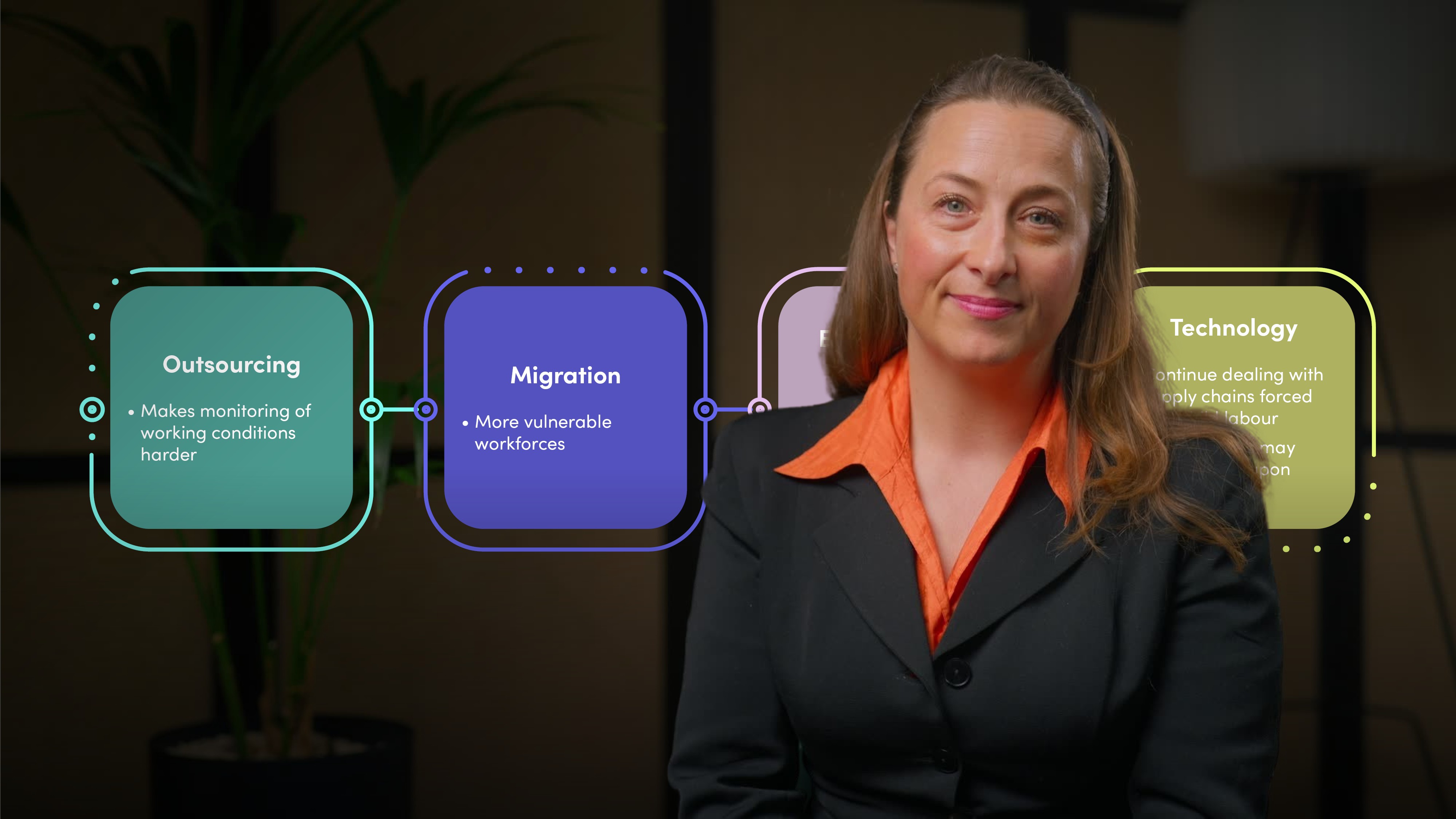
Remedying Human Rights Risks

Kate Larsen
20 years: Human Rights and Supply Chains
In this video, Kate discusses how to remedy human rights risks in business value chains and how companies should be reporting on them.
In this video, Kate discusses how to remedy human rights risks in business value chains and how companies should be reporting on them.
Subscribe to watch
Access this and all of the content on our platform by signing up for a 7-day free trial.

Remedying Human Rights Risks
11 mins 33 secs
Key learning objectives:
Understand the concept of human rights due diligence in business operations and value chains
Outline key features of effective grievance mechanisms
Overview:
Businesses are expected to actively identify and address human rights risks within their value chains. Effective human rights due diligence involves mapping out potential negative impacts, such as poor working conditions, environmental harm, and privacy infringements. Companies should not only report these risks but also implement grievance mechanisms that are accessible to vulnerable workers. Examples include helplines for reporting rights violations and partnerships with organisations like Unseen for modern slavery issues. Investors play a crucial role by engaging with companies to ensure they are taking appropriate actions to remedy these issues, such as paying compensation or improving working conditions. Effective human rights due diligence contributes to achieving sustainable development goals and improving livelihoods for vulnerable populations globally.
Subscribe to watch
Access this and all of the content on our platform by signing up for a 7-day free trial.
Under the UN Guiding Principles on Business and Human Rights and various due diligence legislation, companies are expected to report on how they are addressing human rights risks. This includes:
- Grievance Mechanisms - Effective channels for affected individuals to report issues
- Transparency - Clear reporting on how they are causing or influencing remedy
- Data and Specific Groups - Details on the exact groups receiving remedies and supporting data
What is the role of investors and banks in human rights due diligence?
Investors and banks play a crucial role in influencing companies to improve human rights practices. They should:
- Engage and Monitor - Regularly engage with companies on labour, safety, environmental, and data rights management improvements
- Report and Influence - Include human rights issues in various reports such as ESG, CSR, and sustainability reports, and influence companies to establish effective grievance mechanisms
- Legislation Compliance - Adhere to legislation like the USA's Uyghur Forced Labour Prevention Act, which highlights the risks of sourcing from regions linked to forced labour
Subscribe to watch
Access this and all of the content on our platform by signing up for a 7-day free trial.

Kate Larsen
There are no available Videos from "Kate Larsen"





























